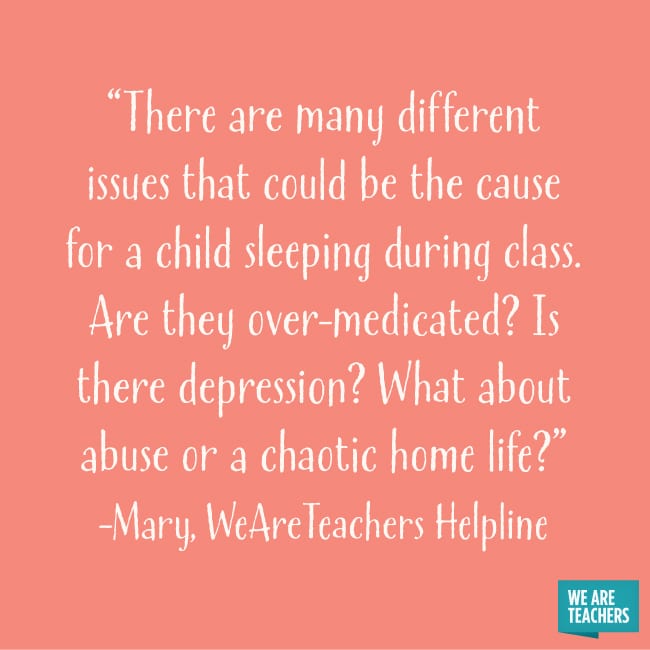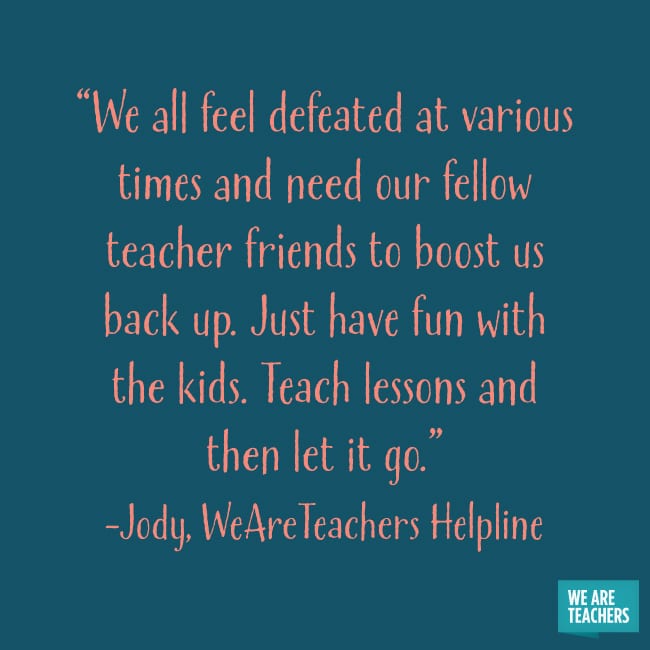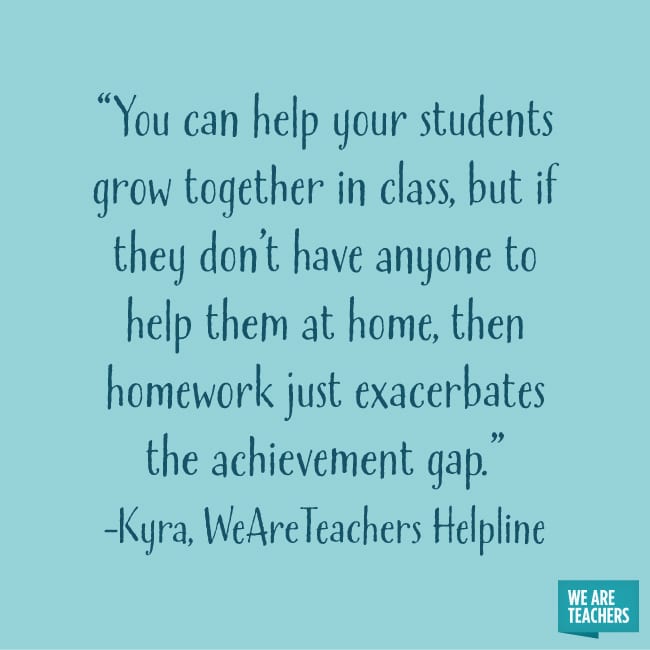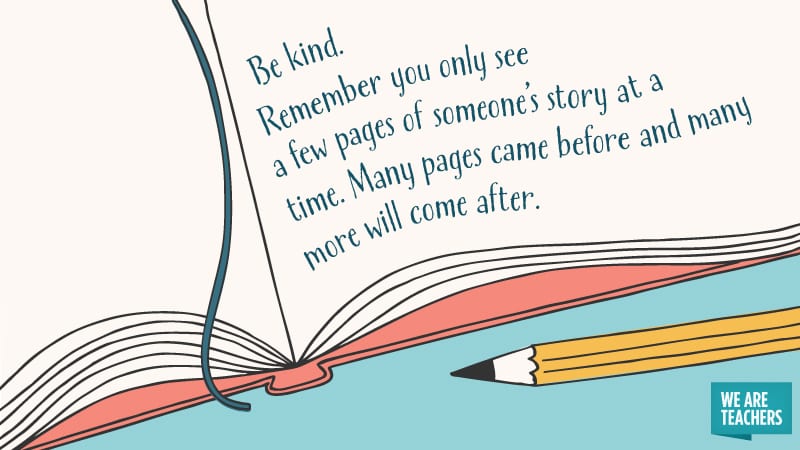A student falls asleep in class.
Your principal hasn’t responded to your email from three days ago.
When you call a parent to talk about a concern, they blame you.
These are all very real and frustrating scenarios that teachers deal with every single day. Yes, they are annoying. And yes, they make this profession more difficult than it already is. But what if there’s more to these stories?
What if the student who is sleeping was working until 2 a.m. because their family needs money to help pay rent? Or what if the principal is dealing with a sick pet at home, along with a looming $3,000 vet bill? And what if that parent just received some devastating news?
Every day, we’re all met with challenging interactions and less-than-perfect situations. It’d be nice to think that we always handle those times with grace and compassion, giving people the benefit of the doubt. But if you’re like me, you know it’s not that easy and there’s probably always room to improve. Here are some alternative perspectives to consider and tips on teaching with compassion.
A student isn’t just sleeping in class …
Many times, there’s a reason a student can’t keep their eyes open, and it’s not just because they were up playing video games. Mary from the WeAreTeachers Helpline Facebook group writes, “Intervention should be first. Try to ascertain the reason. Are they over medicated or undermedicated? Is there depression? What about abuse or a chaotic home life? Are they homeless? Working the night shift? It’s possible that they’re staying up late playing video games or watching YouTube, but there are also many different issues that could be the cause for a child sleeping during class.”

[contextly_auto_sidebar]
A student isn’t just being disrespectful by cursing …
It’s not easy dealing with cursing in the classroom, but it’s a reality for many teachers. This one can be difficult to navigate, but it’s important to remember we all come from different backgrounds. Perhaps the student who just called you the b-word gets called a lot worse every day. Before you send a student to the office for dropping the f-bomb, check out this great teacher advice about what to do about cursing in the classroom.
A colleague didn’t just spend the last hour complaining …
This same colleague is desperately looking for someone who understands. They go home tired, sad, and defeated. They probably just needed to vent, but it got a little out of hand. In times like this, they could use calming, supportive words like those from Jody, another Helpline participant. She writes, “We all feel defeated at various times and need our fellow teacher friends to boost us back up. Just have fun with the kids. Teach the lessons and then let it go.”

A parent didn’t just blame you for their child’s behavior …
They might just be at a loss at what to do. People react differently to stressful or negative news. They might shut down or get quiet. Or they might get defensive and argumentative. A call from school can certainly catch parents off guard. They might be in the middle of work or dealing with a crying baby in the background. Give them time to absorb the information and don’t take their reaction personally.
Your principal didn’t just ignore your email …
They’ve actually been inundated with phone calls, emails, and emergencies that have taken priority. Sometimes, in all honesty, they might have just forgotten about it. This isn’t necessarily a reflection of how they feel about you or the importance of your email. They just got busy, and it’s okay to give them a nudge.
A student didn’t just wake up on the wrong side of the bed …
They might just learn in a different way. Or maybe they’re not a morning person. Perhaps there’s a lot more going on in their home life than you could ever imagine. This is a time where it’s good to remember self-care, both for yourself and your students. For instance, try a slow start in the morning to help your learners ease into the day.
A student didn’t just forget to do their homework …
It’s important to remember that not all students have homework support at home. Kyra from Helpline writes, “It all depends on the students and the types of support they have at home. You can help your students grow together in class, but if they don’t have anyone to help them at home, are discouraged to read, or are forced to do other responsibilities, then homework just exacerbates the achievement gap.”

A parent didn’t just ask if you were challenging their child …
This parent actually just really wants to do the right thing for their kid. Maybe they didn’t have many opportunities growing up; or maybe they had too many opportunities growing up. As annoying as this question is to teachers, it usually comes from a good place. It might not come off that way, but take a deep breath. Reading this article, “Dear Parent, Please Stop Asking If I’m Challenging Your Child ,” might help, too.
A student didn’t just ask to borrow a pencil yet again …
Maybe this child’s parent didn’t buy them any school supplies to start with. Perhaps they dread asking you to borrow a pencil because they know you’ll be annoyed, but they have no choice because they need something to write with. Instead of thinking about it as YOUR pencils that students steal, take the advice from Helpline member Chris, who recommends this wonderful article, Give the Kid a Pencil. The article makes a strong argument. Don’t shame a kid. Just give them a pencil.
A colleague didn’t just dismiss you …
They’re actually just overwhelmed with all they have on their plate. It could be that they don’t want to collaborate or they’re not the kindest person. (If that’s the case, go find a new circle or other supporters!) But don’t let one interaction or a single person get you down.
How do you nurture teaching with compassion? Come and share in our WeAreTeachers HELPLINE group on Facebook.
Plus, the secret to classroom management.


